MercoPress. South Atlantic News Agency
United States
-
Saturday, September 10th 2011 - 06:12 UTC
US says Germany must give “unequivocal” financial support to weaker Euro states
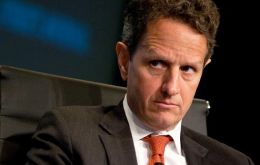
United States pressed Europe's strongest economies on Friday to give “unequivocal” financial support to weaker Euro zone states to overcome a debt crisis that threatens the world economy.
-
Friday, September 9th 2011 - 09:37 UTC
Republicans say Obama 450bn jobs plan proposals “merit consideration”

President Barack Obama urged Thursday evening a joint session of the US Congress to end what he calls the “political circus” in Washington, and move rapidly to approve job creation legislation he is sending to Capitol Hill. There was no official rebuttal from the opposition Republicans.
-
Friday, September 9th 2011 - 09:33 UTC
US trade deficit drops significantly in July as exports climb and oil prices fall

The U.S. trade deficit in goods and services dropped 13.1% in July to 44.8 billion dollars, the Commerce Department said Thursday.
-
Thursday, September 8th 2011 - 06:00 UTC
S&P met privately large bond investors suggesting the US debt downgrade, says WSJ

Ratings agency Standard & Poor's officials privately met with large bond-investors weeks before the firm's US debt downgrade, leaving some believing the chance of a rating downgrade was higher than they had previously thought, the Wall Street Journal said.
-
Thursday, September 8th 2011 - 02:48 UTC
Soros predicts Euro crisis could be worse than Lehman Brothers
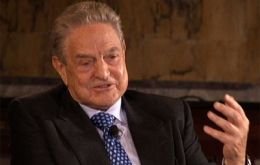
Billionaire George Soros believes that the current crisis of the Euro zone has the ‘potential to be a lot worse than the Lehman Brothers’ in the US due to the lack of consensus in the European Union to create an authority with enough power to handle this problem.
-
Thursday, September 8th 2011 - 00:12 UTC
Review on US economy for Fed’s next meeting shows slow growth, weak activity

The US economy continues to grow slowly, with patches of weaker activity, the Federal Reserve said Wednesday in a report used by the central bank in setting monetary policy.
-
Wednesday, September 7th 2011 - 11:29 UTC
Obama job-creating speech will announce a 300 billion dollars plan, says US media
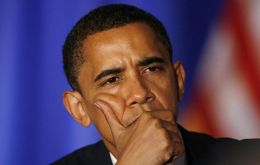
US President Barack Obama will unveil a 300 billion dollars package to create new jobs in an address to Congress on Thursday, US media reports citing Democratic sources.
-
Tuesday, September 6th 2011 - 20:15 UTC
US banks offered deals over improper-mortgage practices, says FT

Big US banks in talks with state prosecutors to settle claims of improper mortgage practices have been offered a deal that may limit their legal liabilities in return for a multibillion-dollar payment, the Financial Times reported Tuesday.
-
Monday, September 5th 2011 - 02:02 UTC
Hurricane Katia intensifies and moves closer to the US east coast
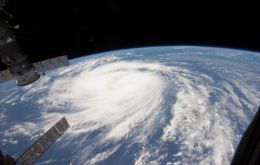
Hurricane Katia continued to intensify Sunday afternoon as it churned in the Atlantic Ocean, spurring warnings about rip currents and fears it could soon develop into a “major hurricane,” the United States National Hurricane Center said.
-
Monday, September 5th 2011 - 01:57 UTC
In the US eight out of ten think the economy is in recession, shows CNN poll
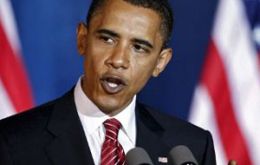
More than eight in 10 US residents think the economy is in another recession, according to a new CNN/ORC poll. One-third of those surveyed think it’s serious.
